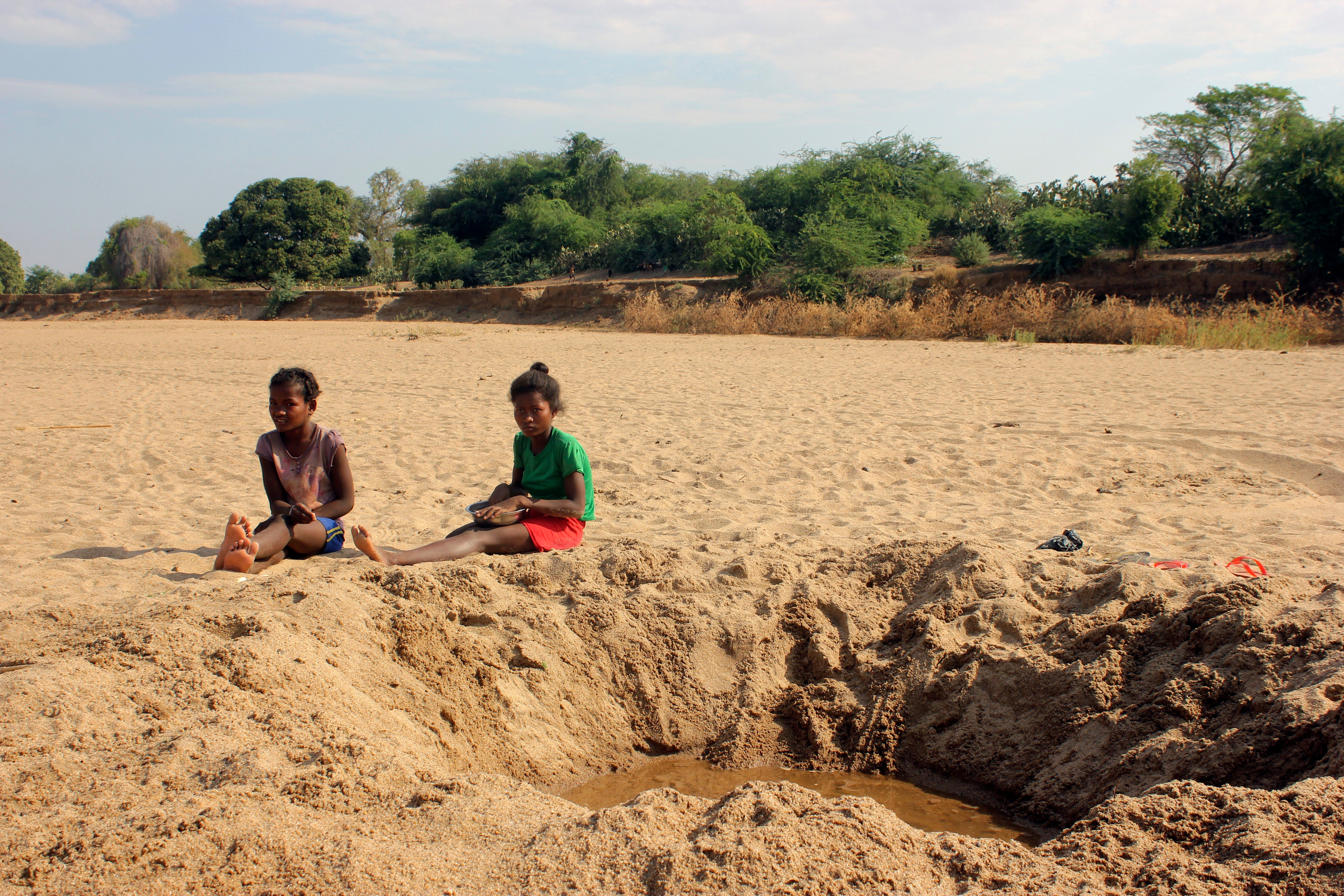Madagascar is on the frontline of the climate crisis
It’s hard to think of a more immediate and more acute illustration of climate impacts in the developing world than the drought in Grand Sud, writes Rindra Hasimbelo Rabarinirinarison


Your support helps us to tell the story
From reproductive rights to climate change to Big Tech, The Independent is on the ground when the story is developing. Whether it's investigating the financials of Elon Musk's pro-Trump PAC or producing our latest documentary, 'The A Word', which shines a light on the American women fighting for reproductive rights, we know how important it is to parse out the facts from the messaging.
At such a critical moment in US history, we need reporters on the ground. Your donation allows us to keep sending journalists to speak to both sides of the story.
The Independent is trusted by Americans across the entire political spectrum. And unlike many other quality news outlets, we choose not to lock Americans out of our reporting and analysis with paywalls. We believe quality journalism should be available to everyone, paid for by those who can afford it.
Your support makes all the difference.There’s a cruel irony to the English phrase “perfect storm” when applied to the three southern regions of Madagascar known together as Grand Sud. There has been a perfect storm of uncontrollable factors – drought, locusts, army worm – which together have led to the current situation where over a million of our people are struggling to get enough to eat.
On the other hand, a perfect storm is just what the region has not had. It has received less than 50 per cent of our normal rainfall over the last rainy season to January, which in turn contributed to 60 per cent losses to the annual harvest in May, leaving nearly 1.5 million Malagasy people without access to adequate water, sanitation and hygiene.
According to Unicef, 69 per cent of people were impacted by drought at the start of this year, compared with only 6 per cent the previous year.
There has been back-to-back drought over two years, the worst since 1981, and it’s clear that climate change is one of the main causes. Indeed, it’s hard to think of a more immediate and more acute illustration of climate impacts in the developing world than the drought in Grand Sud. Those communities are suffering from water scarcity-related issues and the resulting health issues, due to poorer nutrition and lack of access to water, sanitation and hygiene services.
We in the government of Madagascar are responding both to the short-term requirements of the emergency and facing up to the long-term structural challenges. We launched a National Response Plan which included medical and nutritional rehabilitation centres and a Grand Sud Caravan to deliver humanitarian aid.
Along with our global partners, we have established Anti-Kere Operational Command Centres (“kere” means famine in Malagasy) to strengthen local coordination. Tanker trucks have delivered over 50,000m3 of water to 250,000 people over the last three months.
My colleagues in the Ministry for Water, Sanitation and Hygiene (WASH) have also launched an intensive programme in the south including the installation of 425 new water points and the conversion of 1,323 existing ones to solar power.
Last August, we secured an agreement with the International Monetary Fund (IMF) for the highest level of special drawing rights in history. These funds, immediately available, are intended to serve the country’s resilience and economic recovery after Covid-19. This includes development projects in various key areas such as infrastructure, renewable energy, water supply in the south and the fight against malnutrition.
And we recognise that water management and infrastructure in the region is inadequate, which is why we have also launched the Colloquium for the Emergency of the Grand Sud, to address the root causes of the drought and start to build resilience. At the centre of these discussions is our Madagascar Emergence Plan to raise the national standard of living with its 13-point framework.
Sitting in the seat of the finance ministry, I have to manage ongoing demands from all departments for a bigger slice of the national cake. As a result of calls for the doubling of money devoted to water, sanitation and hygiene, this now represents 3 per cent of the total budget following an increase earlier this month.
To keep up to speed with all the latest opinions and comment, sign up to our free weekly Voices Dispatches newsletter by clicking here
But we can’t do this alone. We are benefitting from the support of several key international organisations and institutions. Just to address the water, sanitation and hygiene requirements of nearly 1.5 million people in the region, we need nearly $6m by next May. In three regions of the Grand Sud, fewer than a third of people have access to improved drinking water, forcing them to rely on surface water with the inherent uncertainty of supply and cleanliness.
At Cop26, we had a series of encouraging round table discussions with potential national and international donors, along with the private sector. There was positive support and financial commitments from private sector leaders and key governments, but we need to ensure these resources continue to go to the people who need it most, in collaboration with those working at community level.
Looking ahead, accessing adaptation funds is crucial to those of us in the eye of the climate storm. We hope world leaders and governments follow through on climate finance commitments made at Cop26, and the promised funds for adaptation will help those in the most acute crisis.
Rindra Hasimbelo Rabarinirinarison is Madagascar’s minister of economy and finance
Join our commenting forum
Join thought-provoking conversations, follow other Independent readers and see their replies
Comments